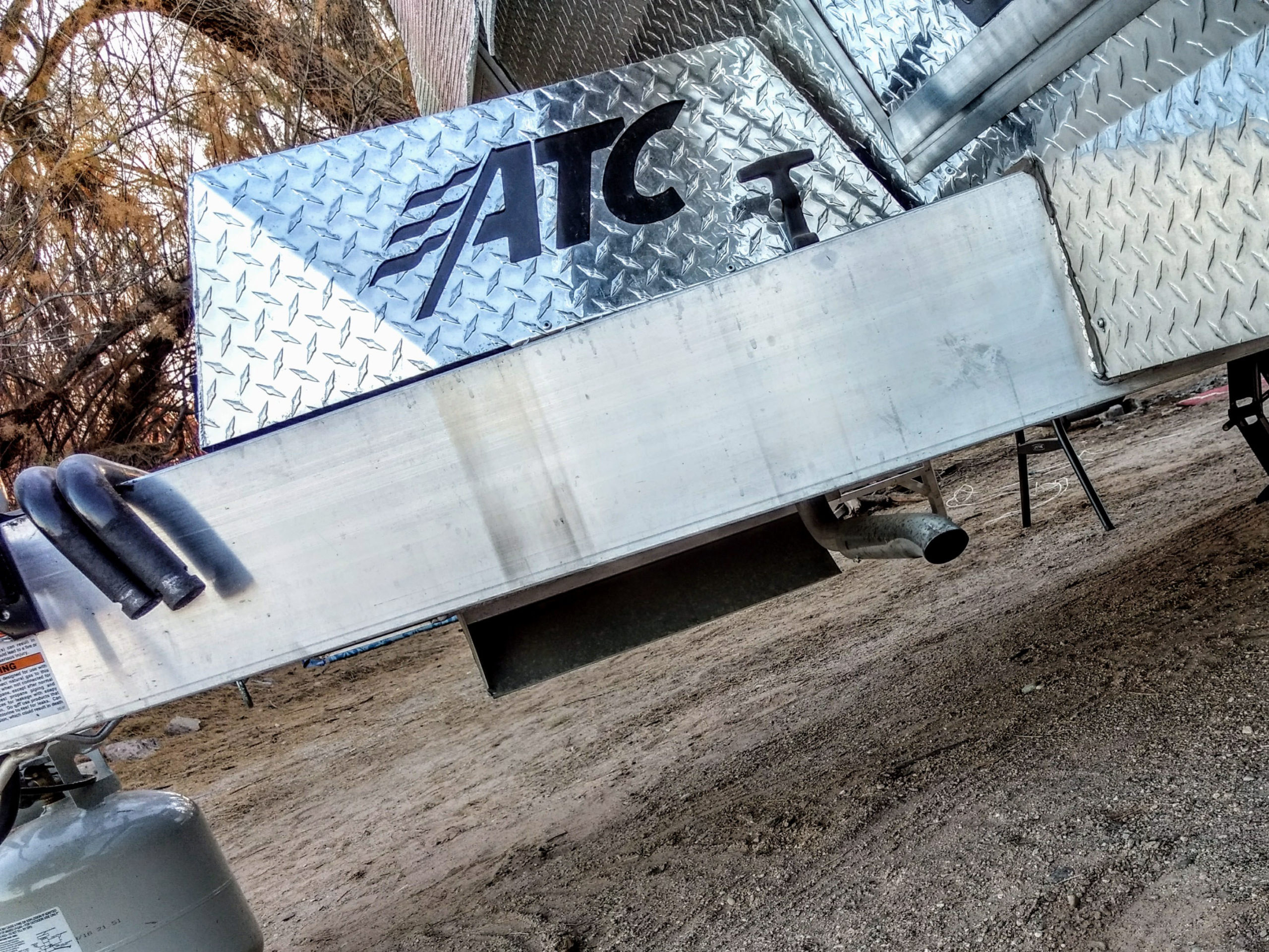Exhaust comes into your RV in one of two primary ways. First is when there is wind blowing outside, creating eddies or vacuums where generator exhaust and propane exhaust can get sucked in through a window, door, or other opening. Second is when there is a lot of cold air descending from the atmosphere and trapping the warmer exhaust from your generator or propane appliance.

Why Do I Smell Exhaust Inside My RV?
Exhaust from a generator or propane appliance can find its way into your RV when the weather changes suddenly. An RV with a built-in generator is designed to move that exhaust away from you. But strong winds or cold temperatures can work against this design.
Strong Winds Create Eddies and Vacuums
When wind strikes one side of your RV, it creates eddies and vacuums on the other side. Depending on where the exhaust port is on your generator or furnace, that exhaust can get sucked into your RV. It comes in through small spaces in door jams, window jams, and ramp doors. This is the most common reason why you will get a whiff of exhaust, or why your carbon monoxide detector goes off. It’s just a temporary problem and is not a flaw in the design of your RV.
Solving this issue is usually done by inspecting your RV’s doors and windows to find tiny gaps, and addressing them with caulk and new seals.
Extreme Cold Pushes Exhaust Into Your RV
As soon as the sun sets below the horizon, cold temperatures rush in. This prevents the heat in the ground from rising up. It also prevents exhaust from rising up. If you are running your generator under very cold weather, its exhaust cannot rise up through this cold layer. Instead it spreads horizontally over the ground, just like fog. Eventually it builds up a layer underneath your RV and finds its way in through tiny spaces.
You can purchase an exhaust extension hose for your generator to solve this. You can get hoses up to 25 feet in length to channel the exhaust away from your RV. (see it on Amazon).
The Exhaust Pipe on Your Generator is Loose
Exhaust leaks usually occur where the exhaust pipe clamps to the exhaust port on the generator. The clamp loosens over time because the generator shakes and rattles when it runs. Exhaust that doesn’t expel through the exhaust pipe ends up finding its way inside your RV. If you continue to smell exhaust inside your RV during normal weather, this is the first place to check.
Your Furnace is Burning Something
If the exhaust you smell is more similar to propane, it could very well come from your furnace. If you are running the furnace in your RV, and you smell exhaust, then go outside and inspect the exhaust port of your furnace. This will be located on the side of your RV, right where the furnace is located. Shine a flashlight into the port and look for black soot. If that’s the case, then your furnace is burning something. Bugs will often crawl inside this port when the furnace is not running. Leaves and debris can get in there too.
There are companies that make stainless steel screens that act as vent covers for these ports. (see it on Amazon)
The Elevation Could Be a Factor
If you have never manually adjusted the fuel mixture on your generator, and you are camping in high elevation, this could produce a more heavy, more smelly exhaust. High elevation is usually 5,000 feet and up when it comes to fuel mixtures on generators. At higher elevation, you should decrease gasoline into the carburetor and increase the air. Most generators have a way to adjust the fuel mixture. You’ll have to refer to your generator’s manual to find it.
Your Generator May Need Servicing
Bad spark plugs is probably the biggest culprit. If the fuel mixture is not adequately combusted you will see more smoke from the exhaust, or you will hear more backfiring. This could also be from too much “blow-by” which is motor oil getting blown into the crankcase vent and pushed into the carburetor. If you see a lot of motor oil on your air-filter, it’s a blow-by issue.


I have an Atwood hydraflame in a 2001 Hornet and when I removed the exterior furnace cover I found the foam gasket on the cover had been broken in the vertical center part that separates the intake/ exhaust from the internal blower section. Exhaust was being sucked through the opening and into the interior fan then into the cabin. I used foam weatherstripping to repair it and no problem since. Use glue to repair not just the weatherstrip factory applied adhesive or you may be making the same repair again.